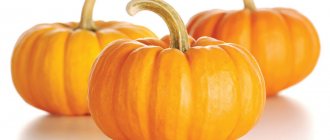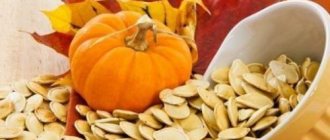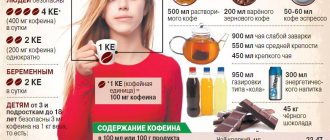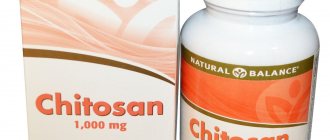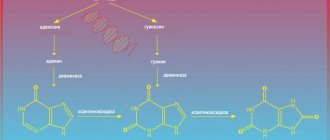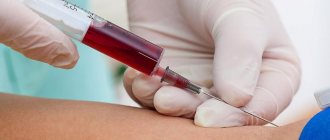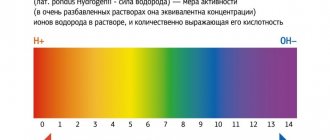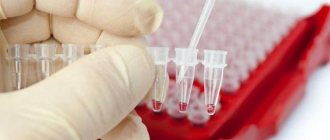Any seeds (pumpkin, sunflower) are widely used in cooking on their own, or as an addition to salads and baked goods.
Some gourmets prefer to eat them raw, without heat treatment, which allows them to preserve all their beneficial qualities. This product contains a huge amount of various minerals, vitamins and microelements necessary for the proper functioning of the body.
Moreover, sunflower and pumpkin seeds have similar properties.
Benefits for the body when included in the diet
Not everyone knows about the unique properties that seeds have, considering them to be useless food. In terms of nutritional value, they are many times superior to chicken eggs or meat and are quickly processed by the body. They are a real vitamin bomb, including a huge number of useful components.
Includes:
- B vitamins;
- magnesium;
- phosphorus;
- zinc;
- potassium;
- selenium;
- ascorbic acid.
It is important to know that the seeds are very high in calories, and 100 g of product contains 53 g of fat, which equals 570 kcal. Despite the huge amount of fats, only a fifth of them are saturated lipids, and they do not contain cholesterol at all. This is due to the fact that cholesterol can only be formed from animal fats, which simply do not exist in plants.
But sunflower seeds contain a unique substance, phytosterol, which in composition and principle of action is very similar to “good” cholesterol (HDL). In the same way, it lowers the level of “bad” cholesterol in the blood and prevents its synthesis in liver cells.
In addition, thanks to their constituent components, they help quickly get rid of headaches, arrhythmia and tachycardia, reduce the risk of developing cancer, restore hormonal balance and endocrine functions. The antioxidants contained in them prevent the aging of the body, and their benefits are invaluable for the nervous system, because they improve the general condition of the skin, strengthen the heart muscle and vision. The beneficial qualities can be listed endlessly, but there are some nuances when their use is not desirable.
Sunflower kernels: composition and beneficial properties
Sunflower seeds are a valuable product with high nutritional value. Its nutritional properties are on par with chicken and quail eggs and red meat. Sunflower kernels contain the following microelements:
- Selenium . Increases the activity of the human body’s immune system, reduces the risk of cancer. Has a beneficial effect on the health of skin, hair, and nail plates. Accelerates intracellular regenerative processes, which promotes rejuvenation of the body.
- Phosphorus . An important microelement that is responsible for the condition of teeth and bones. Affects mental activity.
- Magnesium . Has a beneficial effect on the heart and blood vessels, reducing the risk of heart disease. Helps improve the functioning of striated muscles and nervous system organs.
- Zinc . An important trace element for the adequate functioning of the immune system. It takes an active part in the metabolic processes of the body and regulates the metabolism of amino acids.
- Potassium . Improves myocardial function, controls water-salt metabolism.
- Vitamins B1, B6, B 12 . Helps improve the functioning of the nervous system. They have a beneficial effect on the health of the skin and its derivatives (hair, nails).
In addition to useful microelements, seeds contain a certain amount of proteins, fats, and carbohydrates. The amount of protein per 100 g of sunflower seeds reaches 20 g, fat is at least 52-55 g. The amount of carbohydrates is insignificant - 3.5 g per 100 g of product. Due to the high fat content, the energy value of the seeds is very high and amounts to 578 kcal per 100 g.
In addition to all of the above, sunflower seeds are a source of antioxidants , which are very beneficial for the body. Antioxidants are substances that have the ability to oxidize. Metabolism of nutrients is carried out with the participation of oxygen molecules. Thus, the body receives energy for life. During metabolism, molecular oxygen can be formed, which is in a free state. These are free radicals. Their excessive formation is influenced by a number of unfavorable factors - monotonous diet, decreased activity of the immune system, abuse of alcohol, tobacco, poor environmental conditions. An increased content of free radicals often causes the development of cancer and other serious diseases. Antioxidants are susceptible to oxidation by “extra” oxygen molecules, which prevents the formation of free radicals.
People are accustomed to eating seeds raw and fried . When frying, the lion's share of nutrients is destroyed. Therefore, fried sunflower seeds will bring less benefit to the body than raw or slightly dried ones. Despite all the beneficial properties of the product, the question of whether seeds increase cholesterol remains open. Let's consider it further.
Is it possible to eat seeds if you have high cholesterol?
Meanwhile, it has already been mentioned that seeds and cholesterol are not related concepts. Although abuse of such a high-calorie product can lead to a set of unnecessary pounds, which indirectly affects cholesterol levels.
Includes:
- 20% proteins;
- 53% fat;
- 4.5% fiber;
- 10% carbohydrates;
- 7.5% water.
If in sunflower seeds the main beneficial component is phytosterol, then in pumpkin seeds this role is played by polyunsaturated oleic acid, which helps reduce atherogenic fractions of cholesterol. That is why the seeds are indispensable for atherosclerosis, high levels of total cholesterol, and diabetes. But no more than 60 grams per day.
Any seeds contain a lot of fatty acids that normalize lipid metabolism. In addition, moderate consumption of the product protects cells from toxins and radicals and cleanses blood vessels of cholesterol deposits. A handful of seeds can completely meet the body’s daily needs for all the necessary microelements, vitamins and minerals.
Roasted sunflower seeds
It is important to understand that raw or oven-dried sunflower seeds have all the beneficial qualities, but not fried or salted ones.
During the heat treatment process, some of the useful components are lost without a trace. The high salt content in fried seeds contributes to increased blood pressure and the appearance of edema due to fluid retention in the body. A large percentage of sodium in salt leads to the development of cardiovascular pathologies.
Roasted seeds can severely damage tooth enamel and provoke an exacerbation of gastrointestinal ulcers. It is also interesting that the abuse of such a delicacy can lead to an excess of vitamin B6 in the body. This dangerous condition is called polyneuritis and is characterized by a sharp decrease in protein levels in the muscles, cramps and skin rash.
Proteins, carbohydrates, fats
Sunflower seeds are considered real biological value, like eggs or meat. At the same time, they are much faster and easier to absorb by the body. Raw seeds contain:
- proteins – 21%;
- fats – 55%;
- carbohydrates – 10%;
- fiber – 5%.
Vegetable fats have a high calorie content. 100 g of seeds contains 580 kcal. Excessive consumption of seeds may well contribute to the appearance of several extra pounds. Excess weight, as you know, can cause problems with metabolism and cholesterol.
Possible harm and contraindications
Despite the obvious benefits, the product can also cause serious harm. This is due to the high calorie content of pumpkin and sunflower seeds, which not only leads to obesity, but also increases cholesterol levels.
Direct contraindications for use include intestinal or stomach ulcers, high acidity, and hypertension.
Salted and fried seeds should not be eaten even by completely healthy people, and with an increased level of low-density lipoproteins, they are absolutely excluded. For diabetes mellitus, during lactation and pregnancy, seeds are included in the diet carefully, in small portions. The main thing is not to fry or salt the product, but to eat it raw or slightly dried. Moreover, only freshly harvested seeds will be useful, but not last year’s.
Myths about seeds
Sunflower seeds are a very popular delicacy, around which many myths constantly appear. Which ones are true and which ones are fiction?
- During pregnancy, sunflower seeds should be completely excluded from the menu. Not at all. You can consume 50-100 g of seeds regularly. They will not cause harm; on the contrary, they will help to establish the body’s metabolic processes.
- You can't eat seeds if you have diabetes. Not quite a correct statement. Only sunflower kozinaki is prohibited because it contains a large amount of sugar.
- The seeds can trigger an attack of appendicitis. Inflammation of the appendix is caused not by the seeds themselves, but by the husks from them; it can also be grape or watermelon seeds that cannot be digested by the stomach.
- Cannot be consumed while on a diet. A myth based on the calorie content of a product. During the diet, you can eat 50-100 g of seeds every day. Moderate consumption will help improve digestion and will not lead to extra pounds.
Daily norm
Most of the unique healing properties will be preserved in the seeds when dried outside, in the open sun. They are first carefully sorted and washed, and after complete drying, they are packaged in fabric bags for further storage.
You should not buy and eat already peeled seeds, because it is the husk that can protect healthy fats from oxidation. The maximum daily intake of seeds (both pumpkin and sunflower) is no more than 50-60 grams (without husks).
Some historical facts
Sunflower is a crop brought to our country from the American continent. It first came to Europe during the time of Columbus and the Spanish conquistadors. Initially, it was classified as an ornamental plant, so it began to be eaten several centuries later. Sunflowers served as decoration for park areas and gardens.
In Russia, the plant began to be cultivated at the beginning of the 19th century. One peasant tried to extract oil from sunflower seeds. To do this, he used a hand press and carried out his plan. By the end of the 19th century, sunflower oil had become a popular product in Europe and in the historical homeland of the culture - America.
Pumpkin seeds and cholesterol
Just like sunflower seeds, pumpkin seeds not only do not contain cholesterol, but also effectively reduce its levels in the body. This essential product is a source of a large number of different fatty acids, fiber, proteins, folates, vitamins and mineral components. In addition, pumpkin seeds are widely used in folk recipes as an anti-inflammatory agent for genitourinary pathologies, prostate hyperplasia, etc.
Eating them if you have high cholesterol is not only possible, but also necessary. Thanks to their unique qualities, they perfectly cleanse the body of LDL, already formed in the vessels of cholesterol plaques.
Do not forget about moderation and correct use. You cannot fry or salt them, but it is best to rinse fresh seeds, soak them overnight in cold water, and peel and eat them in the morning. Just 60 grams per day will completely cover the daily requirement of almost all substances necessary for the body.
Both pumpkin and sunflower seeds do not contain cholesterol, but contribute to its rapid removal from the body. In moderate quantities, they contain the full daily dose of the basic microelements and vitamins necessary for the body. You should not eat salted or fried seeds, but preference should be given to dried or raw ones.
Folk remedies
Reducing high cholesterol using folk remedies brings good results when combined with a low-calorie, cholesterol-free diet
| Recipe name | Ingredients in the product | Manufacturing method | Reception scheme |
| Cholesterol decoction from sunflower seeds | · unripe sunflower fruits - 500.0 grams; | The seeds should be boiled in water over low heat for 2 hours. After this, filter the broth. | Take the decoction in small sips throughout the day. The course of therapy with seeds is 2 weeks. Then break for 5 days and repeat the therapy. |
| · 2000.0 milliliters of water. | |||
| Infusion of seeds for cholesterol | · 1.0 kilograms of seeds; | Germinate the seeds for 20 hours. After this, pour boiled water and leave for 8 hours. After that, filter. | Take an infusion of 50.0 milliliters 5 times a day before meals. The course of therapy is 2 weeks. |
| · water. |
Pumpkin seeds
Uses of sunflower seeds
Of course, the most common product obtained from sunflower seeds is the well-known sunflower oil [7]. This is the most common type of vegetable oil used in Russia and Ukraine. These same countries are leaders in the production of this product throughout the world. Sunflower oil is widely used in cooking, soap making and for the manufacture of various paints and ointments.
Sunflower seeds themselves have long been used in cooking, both as an independent product and as an integral part of a variety of dishes [8]. They are often added to salads, delicious sweet dishes are prepared from them, and used in baking bread [9]. Kozinaki, familiar to everyone from childhood (or grilled meat in the French style), is also made from sunflower seeds with the addition of honey or caramel. Some tea manufacturers use sunflower petals in elite blends to give them an exotic aroma. However, the more well-known and widespread method of consumption is roasted seeds. They are so popular that they have not been ignored in industrial production. Nowadays in supermarkets you can see a wide variety of packages containing roasted seeds. They are offered to the consumer both in regular form and with the addition of salt. However, it is better to give preference to home-prepared delicacies, since finished products may contain substances that are unsafe for health [10].
Thanks to the beneficial substances included in their composition, sunflower seeds are used in folk medicine and cosmetology [11][12].
In medicine, bronchitis is treated with a decoction of seeds. The raw, unripe product is used in the manufacture of medicine that normalizes blood pressure and can prevent diseases such as atherosclerosis. Eating small amounts of raw seeds daily will help prevent acne and also improve skin condition. With the help of seeds you can get rid of irritation and prevent the occurrence of a stressful condition [13].
Oddly enough, with such a high energy value, the seeds are not rejected by nutritionists in their weight loss programs. This is because their composition is completely free of cholesterol, and they are an effective means for removing excess cholesterol from the body. Thanks to protein, the seeds are recommended for consumption by athletes, as it helps strengthen muscles and form a beautiful athletic physique.
In cosmetology, sunflower seeds are used in the production of scrubs, creams and masks that improve skin condition thanks to the vitamins and minerals they contain, which promote rejuvenation and cell restoration. They also have a beneficial effect on hair, restoring shine and strength to it.
Seeds should be stored in the refrigerator or in a room with a temperature of no more than 10 degrees Celsius and a humidity of 20%. It is not practical to store them at home, so it is better to buy them in small portions, preferably dry them immediately and eat them within a few weeks.
A few words about cholesterol
Before you figure out the question of whether you can eat seeds if you have high cholesterol, you should remember a little what this substance is and what its main properties are. Many people only think about the dangers of cholesterol when they often hear about it, especially after watching enough advertising on TV. But in fact, cholesterol, or as biochemists correctly call it cholesterol, is an important and very necessary substance, which is an essential component of all cell membranes of our body without exception, therefore, when its quantity decreases, serious diseases can occur.
Note. Cholesterol must be produced in the body or supplied with food since it is a vital chemical compound. With proper lipid metabolism, it is not dangerous. If there is not enough cholesterol, serious pathologies can develop, including cancer, and if there is excess, atherosclerosis can develop.
In addition to its structural and functional participation in cytoplasmic membranes, cholesterol is needed for the functioning of the nervous system, hormonal synthesis and a number of other important processes. Simply put, without it the normal functioning of the human body is impossible.
However, with metabolic disorders, low-density lipoproteins (LDL, LDL) begin to accumulate, which are a complex of protein and lipid, the latter being much larger. These compounds begin to accumulate and stick to the endothelium of the vascular walls, especially in damaged areas or during blood stagnation, which is why so-called cholesterol plaques are formed.
This helps to reduce the lumens of blood vessels, which causes the following pathologies:
- atherosclerosis;
- heart pathologies;
- hypertension;
- endocrine diseases, primarily diabetes mellitus;
- diseases of the pancreas, liver and kidneys;
- varicose veins and other vascular pathologies.
Under normal conditions, about 80% of cholesterol is synthesized, and 20% is formed as a result of the digestion of consumed food. If there is a lot of fat in food, then the production of the substance in the body decreases and vice versa.
When lipid metabolism is disturbed, the amount of cholesterol in the blood exceeds normal levels, often several times. Therefore, doctors strongly recommend that patients with metabolic disorders eat less fatty animal products.
